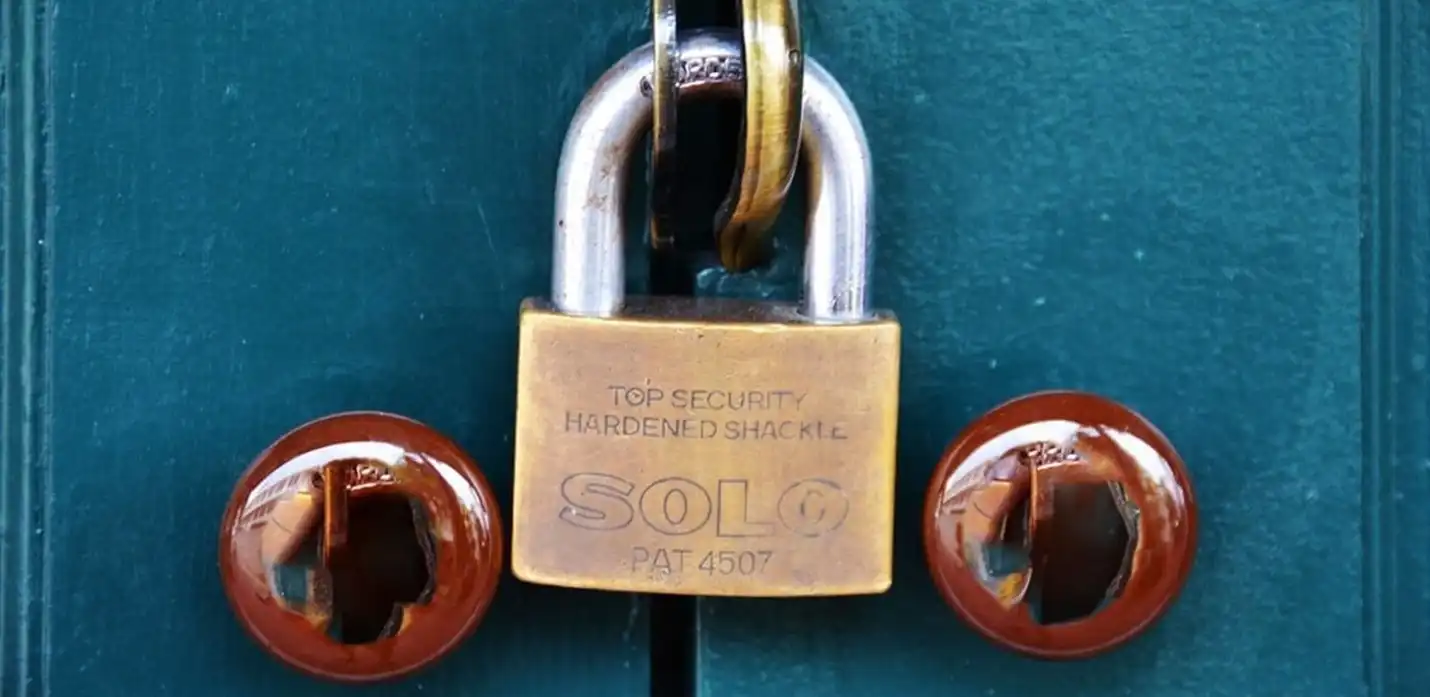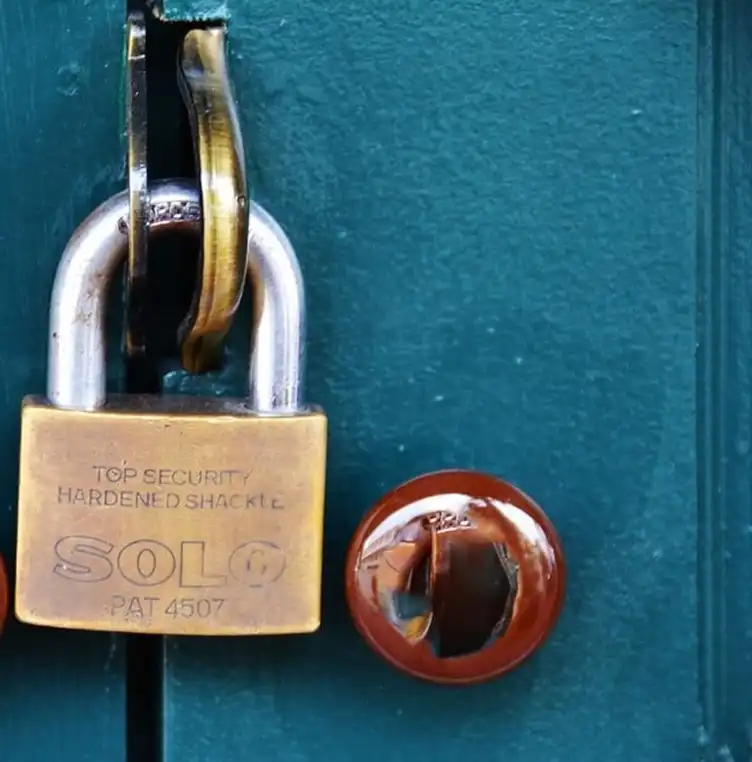
You might have seen ads urging you to get services that “lock” your title against deed theft.
First, is deed theft really a thing? Next, if it is, do “title lock” companies really prevent it?
Yes, and no. Let’s break this down, Q&A-style. Then, we’ll offer some important but simple tips to keep tabs on your homeownership.
What’s the Chance of Anyone Stealing My Deed?
Low, but more than zero.
The past president of the Pennsylvania Recorder of Deeds Association this year said deed theft is rare. Yet the Texas Senate is concerned enough to try to heighten penalties for deed manipulation.
It nearly happened to Elvis Presley’s Graceland. (The FBI had to step in.) It can happen to ordinary deed holders, too.
Any deed can be targeted. But you’re more likely at risk if you’ve left a property unattended, or if you’re a senior with a paid-off mortgage. These factors can let your home slip under the radar and make it more attractive to bad actors.
Some counties—including Hancock County, Indiana—partner with Equity Protect, offering free reports that show a property’s risk level (low to high). Equity Protect also offers a paid service that records a lien-like notice designed to require the homeowner to remove it before any new deed activity can be recorded. However, this is not a legal title ‘lock,’ and its effectiveness or enforceability may vary.
Taking a loan out against your property to keep it safe from fraud? First, read this article on liens and deed theft.
How Does a Deed Thief Operate?
Swindlers exploit a homeowner’s public records and personal information. They pretend to be legitimate deed transferors.
Once they transfer a deed to one of their companies, they can transfer it again to an innocent third-party buyer. Once the deed is transferred again, the swindlers have distanced themselves from the faulty deed. This creates a mess for the rightful owner and any innocent parties caught up in the scam.
Bad actors falsify notarizations, too. Some even recruit notaries willing to take part in these schemes. Then they exploit recording offices. Most deed recording offices aren’t authorized to run background checks on people who submit deeds for recording. That said, some counties are now empowering recorders to verify information when someone presents a deed to them. Yours could be one of those counties.
Once a false deed does get recorded, the deed thief might rent out the home (if you’ve left it unattended). Or the swindlers might get their hands on your equity, or resell your home.
The possibilities for lasting harm are real. Deed fraud puts the rightful homeowner in a jam. A court case to get a title back costs thousands of dollars and can take many months to slog through. Meanwhile, the true owner can’t borrow against the home or transfer the deed.
Some deeds can be quickly returned to their rightful owners — particularly when the manipulation is caught promptly. Other cases require quiet title actions in court.
A Company Called Home Title Lock Says It “Locks” Out Deed Thieves. True?

Despite the name, titles cannot actually be ‘locked.’ Home Title Lock provides a monitoring and alert service. It also claims to support customers with legal needs if issues arise. Other subscription companies use words like “protect” or “guard” or “shield” in their brand names. They overstate the protection they can give a deed holder.
These companies send messages whenever they note a deed transfer, a new loan or lender, a default status, or new property in their customers’ names. But they cannot “lock” anything. Home Title Lock admits as much. The company claims to support customers when they need an attorney — whatever that may mean.
And alerts are likely available for free from your county recorder of deeds. These days, hundreds of county clerk’s offices from coast to coast provide fraud alerts that notify deedholders when changes are made to their documents. Just look up your city or county deed recorder’s office, and type your home address into the online system. You’ll get an email saying you’re in.
You can set up an alert with your senior parents or friends for their addresses too.
If county alerts are unavailable, enter your address as a search alert on your computer, and regularly scan the major real estate sites to check that your home isn’t described as listed for sale.
Nothing we’re describing here has anything to do with a “lock.” But it does keep you informed about the status of your ownership, so you can act fast if anything changes.
Can I Skip the “Lock” Subscription and Protect Myself for Free?
Yes. We’ve talked about setting up alerts with your county above.
And if you want to protect yourself against impersonation (a common practice of deed thieves), you can check out some reviews of companies here. (Deeds.com does not make any endorsements; nor are we affiliated with any of the companies listed.)
And there are still other ways to look out for your identity and your deed. To know when something’s amiss, adopt these (free!) habits, starting today:
- Watch for notices about mortgage statements, property taxes, or liens.
- Call the company to be sure all is in order if you have trouble logging on to one of your accounts. Do the same if you notice any unusual activity on any account.
- Don’t just toss commercial mailings. Check them for unusual bills, past-due alerts, or other significant notices.
If any regular bill stops coming in the mail, or stops charging to an autopay system, call the company and find out what’s going on.
Buying a home? Consider purchasing an owner’s title insurance policy, for a single premium at closing. The American Land Title Association (ALTA) is an example of a firm whose title insurance policy protects buyers if their title was ever forged before their home purchase. Plus, ALTA offers a homeowner’s insurance policy that protects a deed holder against a fraudulent transfer in the future.
I Think My Deed Has Been Wrongly Transferred. What Now?
Do not delay.
If someone has actually recorded a new deed, trouble can escalate. The swindler could take out a loan against your home, or sell it to an unsuspecting buyer. You’ll want to interrupt this activity at the earliest possible moment. Reduce the harm by acting quickly. Contact local law enforcement and your local recorder’s office.
Your county attorney general office should also be notified. The County DA can help you with concerns about your property, including real estate fraud.
Federal investigators also accept concerns about property fraud. There is a dedicated website for reporting. Look up the FBI’s Internet Crime Complaint Center (IC3). It handles reports from the public about criminals who engage in fraud online.
And do contact your title company. Find out what level of coverage your title has, and if the company can support your efforts to recover your all-important deed.
Supporting References
Herb Weisbaum for the Delaware Valley area Checkbook: Home Title Monitoring Services Mislead About a Rare Crime (updated Jul. 1, 2024).
Jim Gold for Money Talks News: Eight Things You Should Know Before ‘Locking’ Your Home Title (Oct. 16, 2024).
Deeds.com: Heirs, Protect the Seniors in Your Life From Deed Theft (Jan. 20, 2023).
And as linked.
More on topics: Texas investigates Home Title Lock (2023), Insuring your title at closing
Photo credits: Pixabay, in the public domain (via Picryl, by GetArchive).
